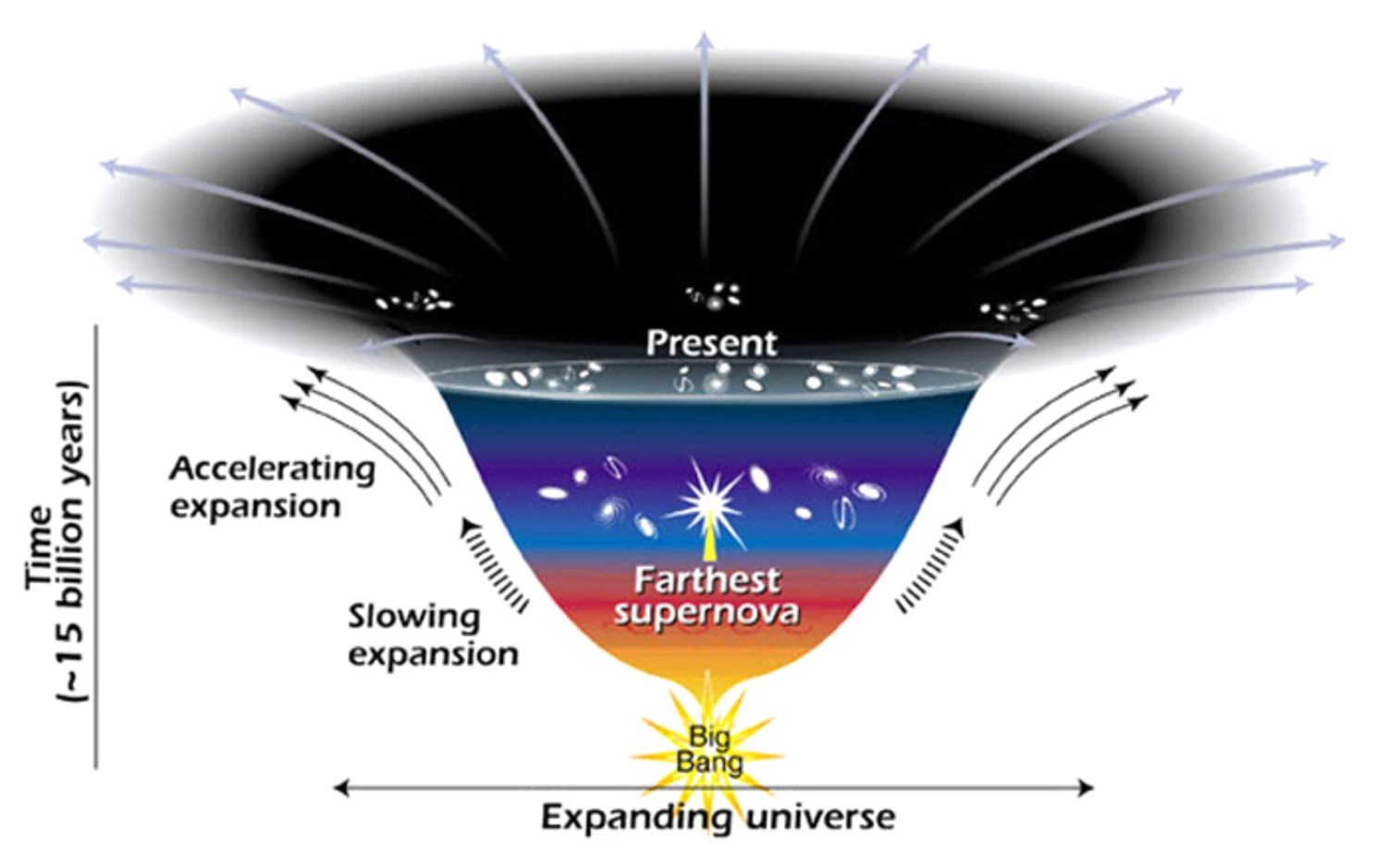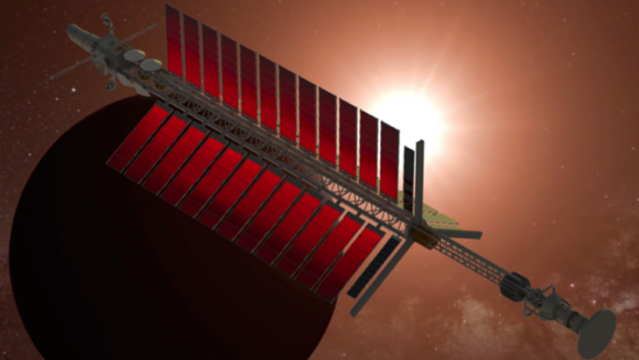The 4 Lessons Every (Good) Scientist Must Learn

Forgetting them, at any step, can lead to unscientific conclusions.
No one, not even the smartest among us, were competent scientists from the outset. The concept of science is simple and straightforward: if you want to know anything at all about the Universe, you must test it, experiment with it, measure it, and formulate rules that are consistent with every single result ever obtained. If your conception of this phenomenon is a good one, you’ll be able to leverage your understanding to make accurate predictions about related phenomena that you haven’t yet observed.
Over some particular range, your predictions will match up with reality: that’s where your idea (or theory) is valid. Where your predictions fail to match reality, however, is where things get really interesting, as that’s where your current idea (or theory) breaks down. That’s where the frontiers of science lie, and where the potential for scientific advances is highest.
To become a good scientist in any field, however, requires skills that take years to develop. Here are 4 vital lessons that every budding scientist must learn in order to be good at what they do.
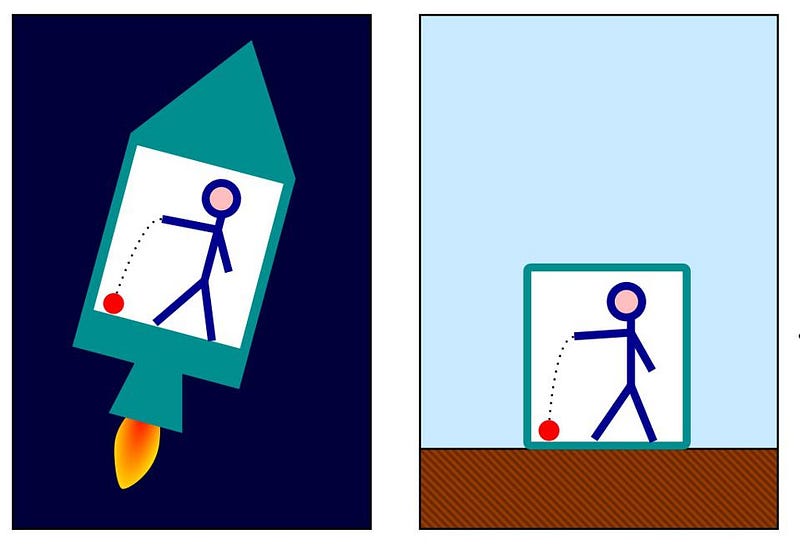
1.) You are full of misconceptions. Work to “unlearn” them. Whenever we learn about a phenomenon for the first time, our brains do something that’s quite remarkable: they try to create a narrative that accommodates and accounts for this new phenomenon in the context of what we already know.
Sometimes, when the new piece of information is extremely analogous to things we’ve already understood, we get it right: students that know Newton’s (attractive) law of gravitation have no problem learning Coulomb’s law of electrostatic attraction and repulsion.
At other times, the new information defies the “common sense” analogies we’ve learned up until this point. Students that know Newton’s laws of motion are often puzzled by the counterintuitive new rules of special relativity; students that know Newton’s gravitation struggle with the new concepts of general relativity; students that know deterministic, classical physics struggle with probabilistic quantum physics.
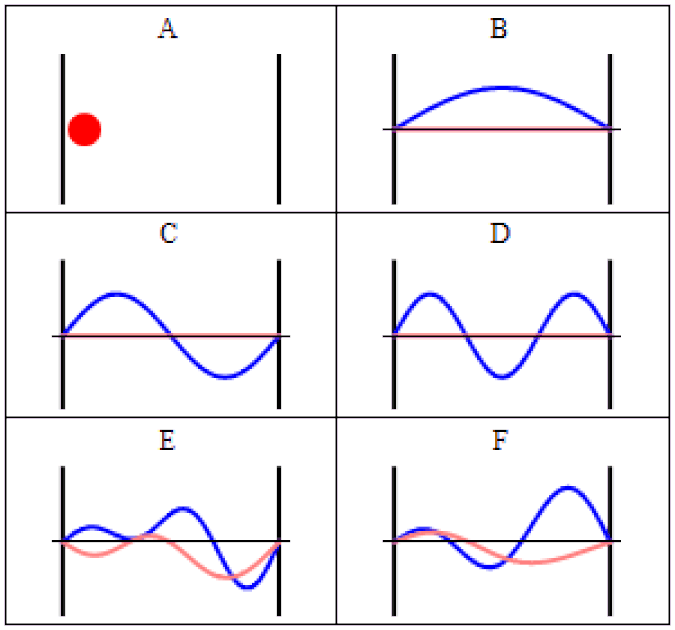
Those of us who’ve successfully navigated a Ph.D. have had to confront — and eliminate — a myriad of misconceptions that we’ve developed along the way. Many of us had to overcome wrong thinking about an aether, or a theoretical medium required for light to travel through. Many of us had to fight our intuition, which wanted to cling to pre-relativistic ideas about space and time, or pre-quantum ideas about properties like position, energy, or angular momentum.
It takes a lot of personal work to not only learn the advanced concepts that are the foundations of modern science, but to unlearn the misconceptions you’ve acquired along the way. This must be an ongoing process, as many of today’s consensus ideas will lead to misconceptions if we cling to them beyond their range of validity. The fringes of science are littered with conspiracies and non-viable ideas that their adherents never successfully unlearned. In order to succeed in science, you must continuously identify and revise your misconceptions.

2.) You will misinterpret what studies (new and old) mean until you have a sufficiently strong foundation of knowledge in that particular area. Many of us, particularly in the information age, have direct access to scientific papers, which is a tremendous asset in this world. However, very few of us have the necessary scientific background — even those of us who are scientists ourselves who venture outside our own areas of expertise — to properly understand what these results mean. The reason is simple: we lack the strong foundation necessary to understand the full landscape of the field in which this research is done.
Most of us, when we’re curious about a scientific issue, will simply search for information about it, and will read it through the lens of our currently existing (and often insufficient) knowledge. If you do a search for whether the Big Bang never happened, fluoride lowers your IQ, or that traditional Chinese medicine is an effective treatment for COVID-19, you’ll find a number of scientific papers and/or books that assert a resounding “yes” to that inquiry.
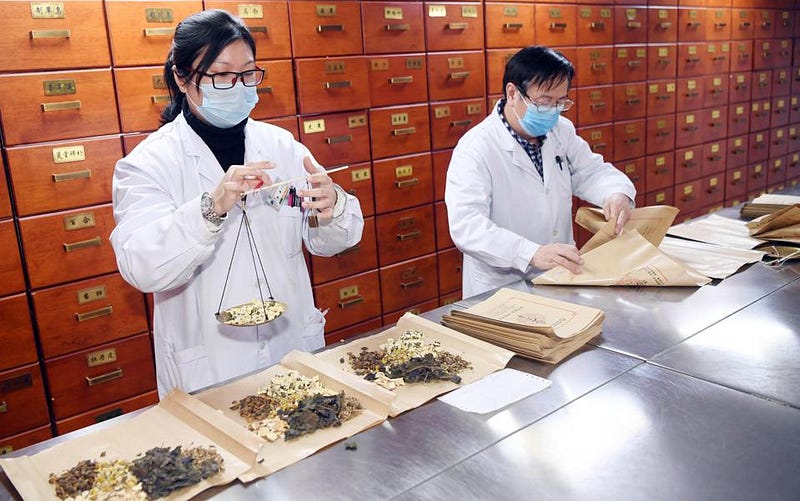
That’s not what the science actually indicates, however. Without a foundational knowledge of what the full suite of evidence is for the Big Bang, the vital biological role of fluoride in the uptake of calcium in tooth and bone development, or the rampant problem of uncontrolled (and debatably fraudulent) studies in traditional Chinese medicine, a non-expert can easily be misled. Even when the person seeking this knowledge is an expert in a related field but has gaps or misconceptions in their foundational knowledge, an incorrect conclusion can be drawn even by a competent professional.
It’s the age-old problem of, “you don’t know what you don’t know” when you venture outside of your expertise. The best thing you can do, if you can find someone willing to do it, is to consult a bona fide expert who has that deep and broad foundational background. Simultaneously, you must remain humble, and be open to the fact that you likely have a number of misconceptions that you will need to challenge in the process of learning the answers. There is no shame in ignorance, but there is great shame in choosing to remain ignorant when the scientific truth is laid bare before your eyes.

3.) Previous “consensus” opinions are often insufficient or even wrong today. But learning how and why is vital. This is perhaps the biggest misunderstood feature — not a bug — of the entire scientific enterprise. Scientists are often unfairly and incorrectly portrayed as narrow thinkers who have simply memorized a large collection of facts, whereas the truth is the exact opposite. At its core, science is not simply a body of knowledge, but a process as well. One must hold in their mind a number of competing ideas and hypotheses simultaneously, evaluating and scrutinizing them all, continuously, in the face of an ever-growing suite of evidence.
Whenever a new piece of evidence comes in, all of those hypotheses must be newly re-evaluated. Some of the ones that were previously viable may be disfavored; others may remain consistent. Some speculative ideas may gain support; others may lose support. And some ideas which were discarded earlier may gain new life, as they may explain some phenomena that the leading, prevailing theories do not.
One example that we rarely pause to consider is universal to us all: the twinkling of stars.
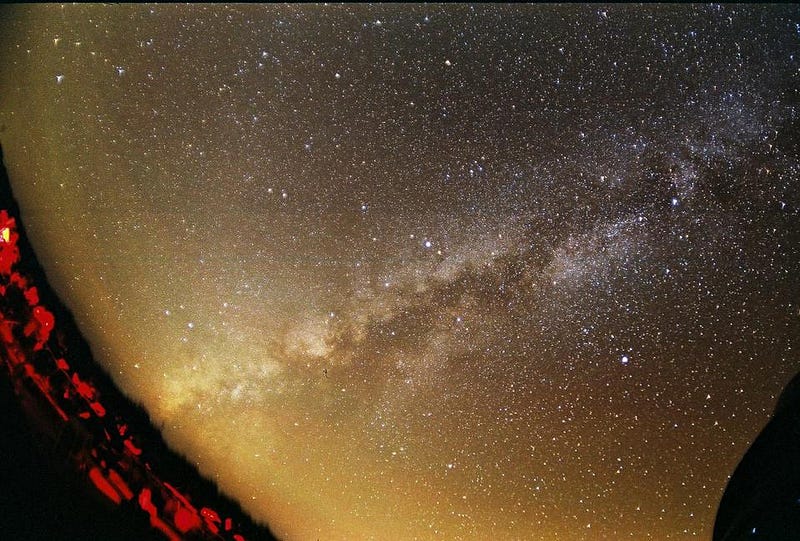
If you’ve ever gazed into the abyss of a dark night sky, you may have noticed nearly all the points of light twinkling in the heavens, with the exception of a few bright ones: the planets. Why do stars twinkle, while planets don’t? For a long time, there were two competing ideas.
- Perhaps Earth’s atmosphere was at fault, with the turbulent airflow affecting the light-path of the distant, point-like stars but not the nearby, disk-like planets.
- Alternatively, perhaps there were interstellar clouds of matter that the starlight passed through, causing the twinkling, while the planets were within our Solar System, meaning their light never passed through the gas.
Both ideas were viable until the dawn of the space age, where cameras, instruments, and eventually humans were able to view the stars and planets from space, demonstrating that the stars no longer twinkled and that Earth’s atmosphere was the culprit. However, interstellar clouds of matter remain a reality, and play an important role in many astronomical phenomena, highlighting the importance of learning about discredited ideas. Learning about old ideas, like Einstein’s cosmological constant, can often pave the way to making sense of surprising and novel findings, such as the faint supernovae that led to our modern discovery of dark energy.
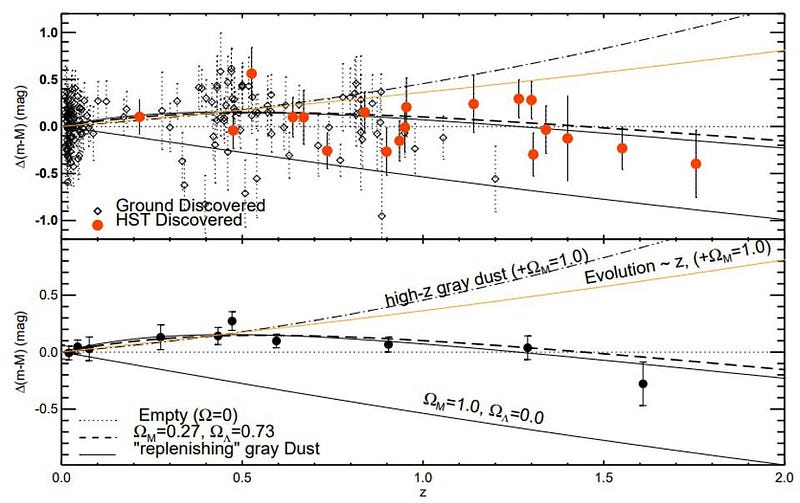
4.) You will have “favorites” among the speculative ideas and hypotheses. And they’re probably all incorrect. This is maybe the hardest part of being a scientist: there are so many ideas out there — with pros and cons to them — about what lies beyond the frontiers of the known, established, well-tested portions of your field. Many of the wildest ideas in established science today, from epigenetics to antimatter, began as unsubstantiated hypotheses. Other ideas that seemed simple and straightforward, like that you’d have 25% of each of your biological grandparents’ DNA or that anti-energy would also exist, turned out not to be the case at all.
Today, there are a slew of speculative ideas that gain a lot of public attention, but that lack an iota of supporting experimental or observational evidence. Many theorists spend their lives on these ideas, which include:
- primordial black holes,
- supersymmetry,
- grand unified theories,
- cosmic strings,
- various approaches to quantum gravity (including string theory and loop quantum gravity),
- and non-constant models of dark energy.
They’re all compelling and interesting in their own ways. And yet, if the history of science is any guide, they’re all likely to be wrong.
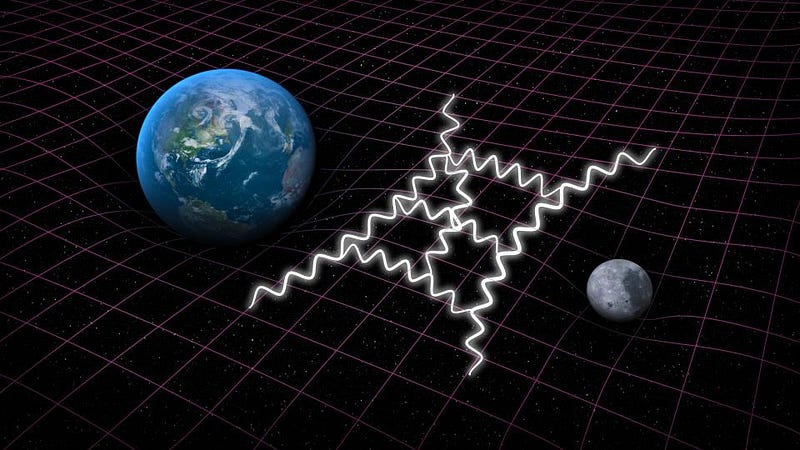
One of the most catastrophic traps that a scientist can fall into is to become convinced of the infallibility of a particular idea or line of thought in their field. When it comes to speculative hypotheses, falling in love with it is arguably the worst thing you can do. Doing so blinds you to all contradictory evidence, strips you of your ability to objectively evaluate competing ideas, and leads you down a path of motivated reasoning: an inherently non-scientific pursuit.
It’s the reason why the scientific advances of Johannes Kepler are still so impressive, even with more than 400 years of hindsight. Kepler had a beautiful, compelling, and original idea about the Solar System: that the planets orbited around the Sun on a series of nested spheres, which he dubbed the Mysterium Cosmographicum. But when the data didn’t match his predictions, he did the most admirable thing one could do, throwing out his model entirely and pursuing a new approach. The result, after many years, was his theory of planets revolving around the Sun in elliptical orbits. It fit the data better than any prior interpretation, and still remains in use for planetary motion today.
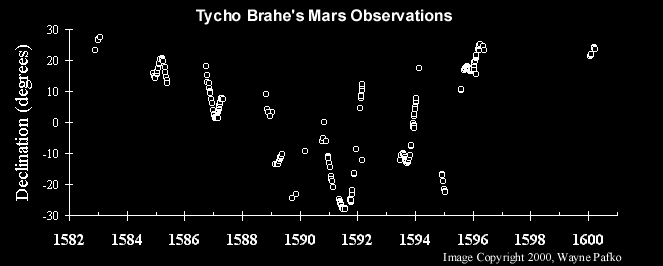
A number of dangerous myths persist even among scientists: that the best scientists are never wrong, that changing your mind on an issue is a sign of weakness, or that it’s a sign of “groupthink” when alternative ideas fall out of favor. The truth is that being wrong is an essential part of learning along the road of becoming a scientist. When you change your mind on an issue, it’s because you’re willing to incorporate new information and revise your conclusions. And, oftentimes, that requires the jettisoning of once popular but now untenable ideas.
Science is inherently an additive, cumulative endeavor. If we hope to keep up with this ever-growing body of knowledge, we need to understand that even our most robust conclusions must always be subject to revision. Every time we gain new information is an opportunity to test our ideas and hypotheses in new ways. Sometimes the consensus is confirmed and validated; occasionally, it’s the spark for a controversy or even a scientific revolution. Whatever the outcome, those who follow these four lessons will always be able to keep up. Those who don’t will fade into irrelevance, as no amount of personal fame will ever alter what is scientifically true.
Ethan Siegel is the author of Beyond the Galaxy and Treknology. You can pre-order his third book, currently in development: the Encyclopaedia Cosmologica.



